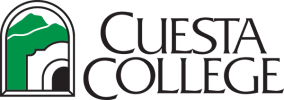
Program Summary
BIOLOGY - Associate in Science for Transfer
The Associate in Science in Biology for Transfer degree will prepare students to transfer into a curriculum at a CSU to pursue a baccalaureate degree in biology.
Biology is the study of living organisms, their structure, life processes, and their interactions with each other and their environment. A major in the biological sciences is recommended for students interested in pursuing further study in biology, botany, zoology, ecology/environmental sciences, microbiology, agriculture, forestry, molecular biology, cell biology, genetics or marine biology. This program also provides an excellent foundation for studies in pre-medicine, pre-dentistry and pre-veterinary medicine and may qualify students for positions as biology laboratory technicians. The sequence of courses may be taken on a full-time or a part-time basis. Some classes are offered both day and evening.
The Associate Degree for Transfer (AA-T or AS-T) is a special degree offered at California Community Colleges. Students who earn an AA-T or AS-T degree are guaranteed admission to a campus within the California State University (CSU) system in a similar major, although not necessarily to a specific campus. Students who complete an AA-T or AS-T are given priority consideration when applying to a particular program that is similar to the student’s community college major and will be given a special GPA advantage when applying to CSU impacted campuses or majors. Students who are planning to pursue an AA-T or AS-T are strongly advised to meet with a counselor for additional information about this transfer program.
The Cuesta College AS-T degree in Biology requires:
(1) Completion of 60 semester units or 90 quarter units that are eligible for transfer to the California State University, including both of the following:
(A) California General Education Transfer Curriculum (Cal-GETC).
(B) A minimum of 18 semester units or 27 quarter units in a major or area of emphasis, as determined by the community college district.
(2) Obtainment of a minimum grade point average of 2.0.
(3) Earn a “C” or better grade in all courses required for the major or area of emphasis. A "P" (Pass) grade is an acceptable grade for courses in the major.